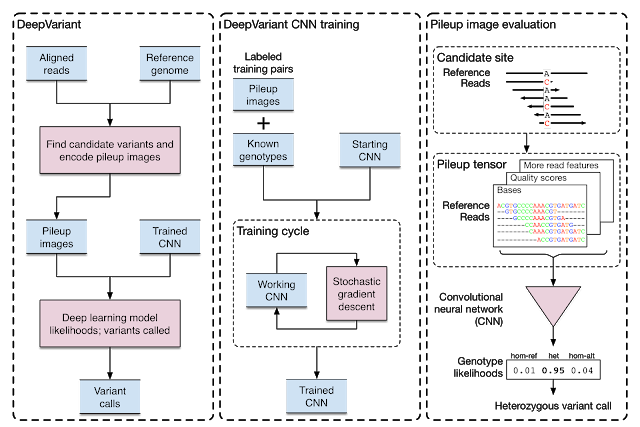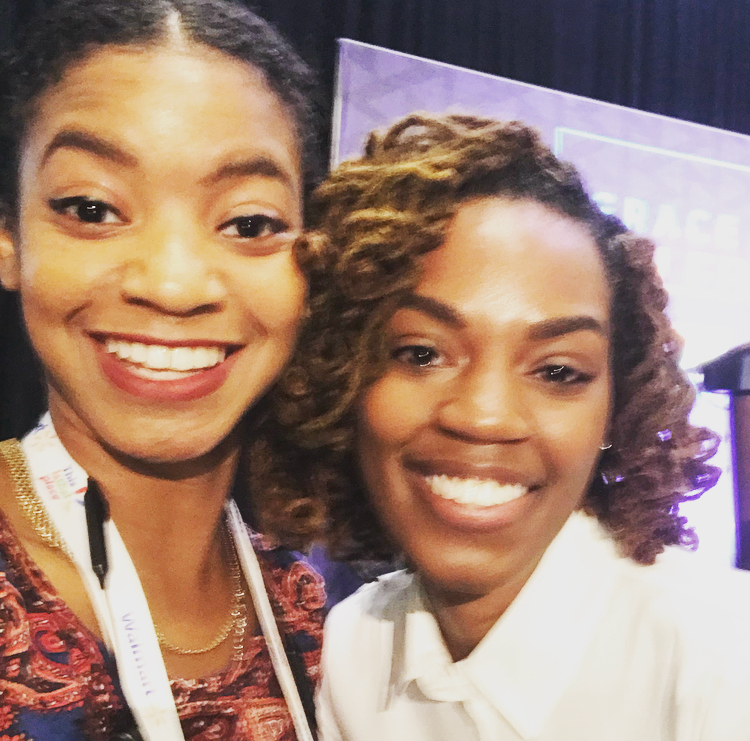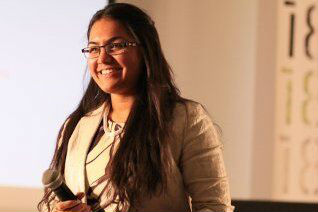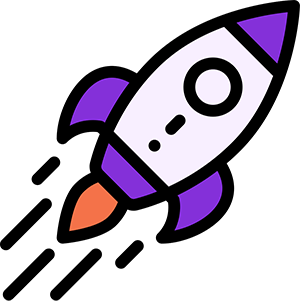An interview with Keisha Howard
I recently had the honor of having an amazing conversation with Geek of all Trades, Keisha Howard, founder of Sugar Gamers and 2x TEDx speaker. Howard started Sugar Gamers as a community for female gamers, which has evolved into a diverse organization within the worlds of technology, gaming, and the arts. Sugar Gamers is dedicated to putting a focus on new and diverse voices in gaming and tech.
Serene Mireles: I’d love to hear more about you. What is your origin story?
Keisha Howard: Well, even though I’ve been a gamer since I was 10 years old, and my brothers always got games, I wasn’t socialized to understand that the video game industry was a place that I could have an opportunity or a career in. I ended up going into real estate development right out of college. During the last recession in 2008–2009 is when I actually started Sugar Gamers, because everything that I worked for at that particular time in the real estate industry completely dissolved. So the directions you receive as a young person—you go to school, work really hard, and work your way up, really did not factor into my life at that particular time. So it let me actually think about what I am passionate about and interested in, and Sugar Gamers just became that thing that I accidentally sort of fell into as a as a founder.

Mireles: What inspired you to get into gaming?
Howard: I have all brothers. I’m the only girl in my family, and my brothers always received those types of toys or entertainment. They were my best friends, and they were my playmates. If I wanted to play, a lot of times I had to play video games. So, initially, I didn’t start off thinking that video games were for me, because they’re for boys—I’m a girl. This was in the early 90s, so the landscape is a little bit different now than it was for me when video games were first becoming popular. We had Gameboy and Super Nintendo, and my older brother used to actually kind of improve my reading skills by making me play role playing games. He would make me play a game called Final Fantasy two, and then he would make me read all the girl parts out loud. Then we played Street Fighter and he would always beat me. I’d get so frustrated that I started to become good at the game just so I could win. The pleasure that comes from competing and winning and honing your skills is definitely something that kept me in the space. I’ve always liked games better than I like TV. I’m an avid reader, so as a kid I would always read books. Video games were sort of the next level of engagement. Instead of passively just consuming media, you are actually controlling a character, which controls the narrative that you’re part of. That’s how I fell in love with games, but understanding and deconstructing the business of video games wasn’t until later when I started Sugar Gamers.
Video games were sort of the next level of engagement. Instead of passively just consuming media, you are actually controlling a character, which controls the narrative that you’re part of. That’s how I fell in love with games
—Keisha Howard
Mireles: What is Sugar Gamers and how did it start?
Howard: Sugar Gamers is a media tech company. The website and its platform has evolved since it first started. The catalyst for it was I was supposed to be on a TV show on the SyFy channel called Ultimate Gamer. I flew out to California, and at the time in 2008, there weren’t any black women that signed up for this particular show, so they really wanted me to diversify their cast. A series of events happened, and ultimately they said that I wasn’t good enough to be on the show. I came back to Chicago angry—like why isn’t there an organization that meets in person, that plays games socially, that’s not all about Call of Duty or Halo or something super competitive and hardcore that has women, and that has people of color, all at the same time? It has to exist, right? It just has to exist. This is not an original idea. It has to exist. And I looked for about a year, but at the time in 2008–2009, there was no other community that existed like the one I created with Sugar Gamers. So I put an ad in Craigslist. I thought I might get 5-10 people, but I ended up getting almost 100 emails. There was something very interesting about how people would reach out. The women were like, “What you’re doing sounds cool, but I can’t play games,” or “I like games, but only play Tetris,” or “I would just like to watch.” It was sort of “I want to be a part of it, but I’m scared, because I’m not good at games.” It was a very interesting idea to me at the time. When we started having events, and starting seeing how liberating it was for women to be around other women, just talking about games and talking about Geek culture, and it being a warm and supportive environment, I realized that there was something here that I found in the void—something that was missing that Sugar Gamers could be a solution to. It’s grown and evolved since then. Now it’s no longer just women, but a collective of people who have the same mission of inclusivity.
When we started having events, and starting seeing how liberating it was for women to be around other women, just talking about games and talking about Geek culture, and it being a warm and supportive environment, I realized that there was something here that I found in the void—something that was missing that Sugar Gamers could be a solution to.
—Keisha Howard

Mireles: Can you speak to you why this work is important to you, and what your hope is for the impact of Sugar Gamers?
Howard: This work is important, because video games are so much more than entertainment. Video games are STEM. So many different demographics of people have been socialized to believe that video games are just entertainment, which diminishes the power of this industry. It’s a $200 billion revenue-generating industry that has very few diverse executive sort of people. The consumers are diverse, but people who make games and own video game studios are typically not representative of the consumer base. That’s interesting to me, because therein lies an opportunity that needs to be included in this STEM conversation. Everyone’s talking about coding and programming, but no one is looking at video games foundationally as a place where people will be inspired to learn about it in the first place, which is astounding to me. I’m screaming into the ether, because my peers, the same peers that I grew up with, have been socialized to believe that video games are not necessarily for them, that they’re not a serious industry, that it’s just entertainment. People don’t understand that there is lots of money to be made, and lots of opportunities. Even if you’re not coding or programming, video games offer the same amount of jobs and the diversity of jobs, like the movie industry. Everybody wants to work in the movie industry, so why would you not talk about video games in that same way? Being in the video game industry, you learn even more productive skills that you can use in almost any tech field. Every app has some gamification element to keep people incentivized to use the app. If you understand gaming intrinsically, as a consumer, you can take that same skill set and actually learn something that is going to be productive to a job. In the future of automation and robots, and artificial intelligence, why wouldn’t you use any tool at your disposal to get people ready to transition their skill set? So that’s why it’s important to me, and also it’s fun!
Video games are STEM. So many different demographics of people have been socialized to believe that video games are just entertainment, which diminishes the power of this industry. It’s a $200 billion revenue-generating industry that has very few diverse executive sort of people. The consumers are diverse, but people who make games and own video game studios are typically not representative of the consumer base.
—Keisha Howard
Mireles: How do you think diversity betters the gaming industry and tech field?
Howard: I truly believe in diversity as the real definition of it. I’ve been in spaces where diversity just means “other”—you’re a black person, you know about diversity, or you’re woman, or you’re from the LGBTQ community. That’s not necessarily what diversity means. It means to gather all types of different people, different perspectives, and different backgrounds, because we can only learn so much through the lens of our own personal experiences. We need other people who are going to come from different backgrounds to bring their perspective, so we can create more universally compelling products, so we can create products that are more sensitive to a larger audience. Ultimately, if you’re able to create universally compelling products, then your bottom line should increase. Diversity is the word that we’re using to tackle the problem, but the solution to it is that you wouldn’t even necessarily have to talk about it anymore. It will be reflected through the products and the services that are created, that are going to reach a larger audience organically and naturally, because you have so many different types of people being able to contribute their story, their their narrative. I think it’s just smarter.
We have so many conversations about diversity, inclusion being this thing, and we create so many safe spaces around it. It is starting, in my opinion, to lose some of the impact. If you talk about how results are improved from diverse teams, then people will start feeling better about implementing practices for long term gain. At the end of the day diversity inclusion is fiscally responsible. Of course as a black woman I have emotional feelings about it. When I see spaces that don’t include me, I absolutely want to fight to be included, and that’s from my personal experience, but from an objective point of view, why wouldn’t I want to create a product that not only appeals to me but to everyone else?

I feel like Sugar Gamers is a blueprint of what it means to have a diverse team. There are so many things that I’ve learned from the people on my team. Even though I’m the founder of the company, I am only as strong as what my team members are contributing. We’ve done some amazing things with the power of a diverse team. From my experience, I know it works. I just want to offer what I’ve done to attract people organically and to have them loyal to our brand. I want to share that blueprint, so other companies can start utilizing it, instead of just pandering to the types of people that they’re lacking. It took me 10 years to learn the skills, to gain the experience, investing, learning the things that I needed to learn working at the tech companies that give me the relevant and skills. When the conversation is just about me being a black woman, which is something that was born into, it completely diminishes all the hard work I’ve done to create the company that I created, and to have expertise that I have. At some point we have to move past these parts of conversation, and understand this should be natural, and begin making these amazing products that come from having diverse perspectives.
Even though I’m the founder of the company, I am only as strong as what my team members are contributing. We’ve done some amazing things with the power of a diverse team.
—Keisha Howard
Mireles: What has helped you achieve success on your journey?
Howard: Two things! First the contributions of my team and the support of my friends and family. Though, being an entrepreneur in this space is one of the most challenging things I’ve ever done, I’ve always had people around that believed in me and what I was trying to accomplish. At my lowest points, even a genuine words of encouragement has allowed me to continue pressing forward.
The second is my commitment to keep learning. I’ve had to continuously learn new skills in order to stay on top of the exponentially advancing world of tech and video games. Being knowledgeable allowed me the confidence to stay motivated.
Mireles: What advice would you give to aspiring entrepreneurs?
Howard: Entrepreneurship is NOT for everyone. Depending on the resources you have access to—it can be incredibly challenging and taxing to your mental and physical health. So for those that are aspiring entrepreneurs, be certain you have the commitment, fortitude, and discipline required to make the sacrifices needed to meet your goals.
Mireles: I did an interview for the blog with Que El-Amin, one of the founders of Young Enterprising Society, and something he said really stood out to me, “We don’t want to have 1,000 tech organizations and still not be a tech hub. We need to make sure we’re working with each other, not against each other.” Do you have any ideas around how organizations can collaborate to work toward the vision of the Milky Way Tech Hub?
Howard: Most of us are accustomed to environments where some level of competition is considered normal. That competitive mindset keeps people from putting in the time and effort to form alliances to accomplish goals. People are more focused on not “losing” to their competitor. However, when organizations have shared missions, being intentional about collaboration means there can be an outcome where everyone wins. It’s difficult, but if we could all worry less about who gets the credit, and focus more on the success of a shared vision—we then expand our support systems, teams, and knowledge base.
To learn more about Keisha Howard and Sugar Gamers, visit: https://sugargamers.com/ or follow @sugargamers on social media.



 Jet Constellations
Jet Constellations








 Today I had the pleasure of attending a very interesting workshop on generative adversarial networks. The goal of the workshop was to teach attendees about deep learning and Generative Adversarial Networks (GANS). In the lab we used PyTorch, an open source deep learning framework, used to demonstrate and explore this type of neural network architecture. The lab was comprised of two major parts an introduction to both PyTorch and GANs followed by text-to-image generation.
Today I had the pleasure of attending a very interesting workshop on generative adversarial networks. The goal of the workshop was to teach attendees about deep learning and Generative Adversarial Networks (GANS). In the lab we used PyTorch, an open source deep learning framework, used to demonstrate and explore this type of neural network architecture. The lab was comprised of two major parts an introduction to both PyTorch and GANs followed by text-to-image generation.